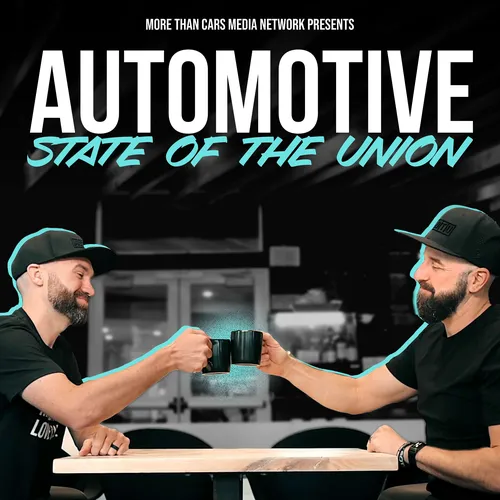Rio Goes Down River, EVs = Potholes, Placement Over Tradition
- Author
- More Than Cars Media Network
- Published
- Thu 24 Aug 2023
- Episode Link
- None
It’s a great Thursday to be on a car lot as we talk about Kia’s plan for a send-off of the Rio. We also talk about EV’s effects on road conditions, as well as consumer preferences when it comes to product placement.
Show Notes with links:
- One of the least expensive new cars on the market, the Kia Rio, is set to be discontinued after the 2023 model year.
- Rio's sales in 2022 were 26,996, marking a 14% drop, and as of July this year, sales have decreased by another 5%.
- Kia's Monterrey, Mexico plant, where the Rio is manufactured, is set to be retooled for the production of two small electric vehicles.
- Light trucks, encompassing minivans, crossovers, SUVs, and pickups, made up 79% of all new U.S. vehicle sales in the first half of 2023.
- Five Most Affordable New Vehicles are now: Mitsubishi Mirage ($19,205), Kia Rio ($20,157), Nissan Versa ($20,763), Hyundai Venue ($23,971), and Nissan Sentra ($23,994).
- Amidst the rapid adoption of EVs, a recent UK study raises concerns about their potential impact on road health. Researchers suggest that the added weight of BEVs, especially larger models, could lead to more rapid road wear and increased potholes, challenging existing infrastructure and sparking debates on vehicle taxation
- U.K. newspaper, the Telegraph, with data from the University of Leeds, reported that BEVs cause up to 2.32 times more wear on roads than ICE vehicles, especially those weighing over 4409
- On average, BEVs are heavier by about 687 lbs more due to their batteries. The “fourth power formula” suggests that doubling a vehicle’s axle weight can cause 16 times more road damage.
- As BEVs don't contribute to gas taxes, discussions arise about taxing vehicles based on weight or battery weight. Norway already taxes vehicles at a rate based on their weight.
- Apart from main roads, residential roads, driveways, garage floors, and public parking garages may also suffer damage from heavier BEVs. The debate on BEV infrastructure needs to consider these aspects in addition to charger availability.
- A BENlabs survey reveals 52% of U.S. consumers favor TV shows with product placements over traditional ads. This shift comes as ad-free streaming rises and traditional TV ads lose traction.
- 66% of North American viewers ignore TV ads; many divert their attention during commercials; 39% believe TV ads lack relevance and value; 31% find them repetitive.
- Top brands in movie placements include Apple, Coca-Cola, and Nike; for TV, Apple, Nike, and Dell lead.
- Neil Saunders, Managing Director at Globaldata, noted, “Companies like Amazon properly monetize it on their Prime Video service with the X-ray feature which suggests products based on what characters are wearing, etc.”
Join Paul J Daly and Kyle Mountsier every morning for the Automotive State of the Union podcast as they connect the dots across car dealerships, retail trends, emerging tech like AI, and cultural shifts—bringing clarity, speed, and people-first insight to automotive leaders navigating a rapidly changing industry.
Get the Daily Push Back email at https://www.asotu.com/
JOIN the conversation on LinkedIn at: https://www.linkedin.com/company/asotu/
